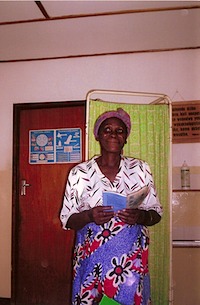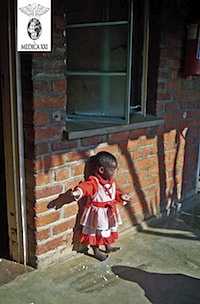Malawi is a beautiful southern African country with one of the world’s most impoverished populations. Despite recent global media attention, little has been achieved in measurable change in desperate situations. With a reported population of 13,013,926 and an estimated 2005 Gross Domestic Product (GDP) per capita of $600.00, Malawi faces many difficulties.
One of the most significant crises occurring is that of access to healthcare. It is reported that the doctor per 1000 patients is 0.02, with 266 doctors in WHO statistics from 2002.
The lack of physicians is a critical concern as Infectious Diseases, particularly Human Immunodeficiency Virus (HIV), Tuberculosis (TB) and Malaria continue to ravage the population.
UNAIDS estimates in 2005 940,000 people were living with HIV/AIDS with an HIV/AIDS prevalence rate of 14.1%. The World Health Organization (WHO) number of people in Malawi with TB in 2004 was reported as 63,159 and the number of new cases 52,042. Malaria cases in 2002 were reported at 2,853,317, with the number of attributed deaths at 6.993.
In addition, public health concerns such as a dearth of easily accessible potable water and malnutrition require attention from healthcare providers, in part due to the obvious direct impact and additionally poor water and malnutrition complicating previously mentioned disease processes.
Further challenges to Malawi’s healthcare system relate to the relatively small number of culturally native physicians and physician extenders. Cultural nuances often significantly impact the direction to diagnosis, implementation of a treatment plan, and provider:patient rapport. Additionally, providers who are not fluent in Chichewa (Malawi’s most prominent native language) face further obstacles to these aspects of care. Translator facilitated conversations are often inherently convoluted, with increased opportunities to err. Requiring a translator can inhibit the open communication between a patient and provider due to embarrassment on the part of the patient. There is also a significant burden of an overuse of the valuable social resource of bilingual people. These individuals are in high demand for other projects for social advancement. Liberating them to participate in other projects will benefit many sectors of Malawian culture.



